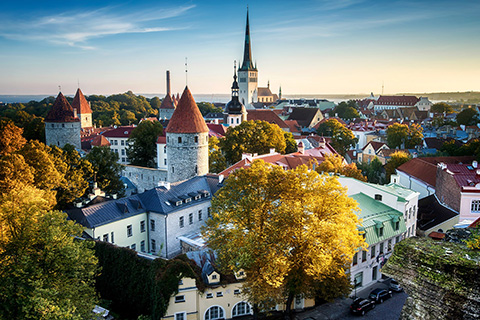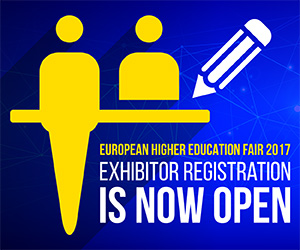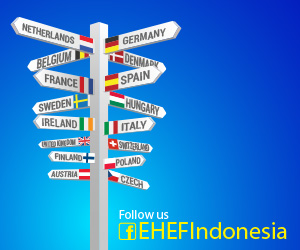
Study in Estonia
Last edited on 04 Mar 2026
Welcome to Estonia!
Estonia, member of the European Union since May 2004, might be a small country, but it has the honor of being the first country in the world to use the Internet as a means to remotely cast votes in democratic elections. If you plan to study in Estonia, you will notice the Estonian creative way of using information technology as part of their daily lives as well as the astonishing combination between history and modernity, tradition and technology. In addition, the majority of higher education institutions offer study programs and courses taught in English and warmly welcome international students and researchers.
This northern European country is one of the safest countries in the world, and is also famous for its leadership in the fields of digital and internet technologies, having been one of the first nations to pioneer electronic ID cards, e-government systems, e-health, e-school, e-parking – you name it, Estonia has digitized it! There’s even an entire website dedicated to describing all the components of “e-Estonia”.
Famous tech startups that began life in Estonia include Skype, TransferWise, CrabCAD, Fortumo and others, and today the country is well known for its entrepreneurial culture, not only in the digital sphere. This innovative spirit is also encouraged among students, and there are various initiatives in place to support students keen to develop their own ideas and transform graduate-level research projects into commercial ventures.
Higher Education System
Estonian higher education has two cycles, following the Anglo-Saxon bachelor–master model. Bachelor’s level studies form the first cycle and master’s level studies form the second cycle. In some specialties, the study programmes have been integrated into a single cycle.
Level I – Bachelor`s degree
Level II – Master`s degree
Level III - Doctoral degree
In addition to the two-cycle general structure, the study programmes of medicine, dentistry, pharmaceutical, veterinarian, architectural and civil engineering training are single long-cycle studies with a nominal length of 5–6 years and with a capacity of 300–360 ECTS credits. Such single long-cycle studies are called integrated bachelor’s-master’s studies and are based on an integrated study programme containing both basic studies and profound specialisation. The completion of this degree will provide a qualification corresponding to a master’s level degree.
Academic progress is measured in credit points (ainepunkt, or ECTS credit). Credit points are calculated cumulatively based on the student’s workload. 1.5 credit points correspond to 40 hours or one week of studies performed by the student. Credit points are not related to the lecturing or any other workload of a member of the academic staff. The normal workload of an average student during a full academic year would be forty weeks of studies adding up to 60 ECTS credit points. Credit points are only awarded for successfully completed courses.
Student Cities in Estonia
Tallinn

The Estonian capital and largest city, Tallinn is arguably one of the most innovative and interesting cities in Europe. Throughout its history, Tallinn has been attacked and invaded by the Danes, then the Teutonic Knights, the Swedes, the Russians, the Nazis, and the Soviets, and it retains monuments and memories from each and every period. The Old Town district allows you to wander the cobblestone streets of the Medieval Ages; the Nõmme suburb offers a trip back in time to the 1930s; the Kadriorg area paints a picture of the Czarist-era with its tree-lined streets and garden parks; the Lasnamäe apartment district represents the ambivalent facets of the Soviet period. While offering a rich feast for history enthusiasts, Tallinn is today a highly modern city, characterized by innovative architecture (especially in the center) and a reputation for being forward-thinking.
Tallinn is home to some of the most prestigious universities in Estonia, including Tallinn University of Technology, Tallinn University, the Estonian Academy of Arts and others.
Tartu

The second largest city in the country, Tartu is often considered the intellectual and academic capital of Estonia. Its population is approximately 97,000 people, and the city is located in the center of the southern part of Estonia. During World War II, Tartu was heavily bombed and left in ruins. Most of the historical buildings were destroyed and the city was declared a "closed town" to foreigners. However, after Estonia regained its independence from Soviet rule in 1991, the city center, St. John's Church and other old buildings were completely restored and renovated. Today Tartu is a vibrant city with unrivalled culture and nightlife, at least in part thanks to the numerous domestic and international students based here.
Tartu is home to Estonia’s highest-ranked institution, the University of Tartu. Other higher education institutions in the city include the Estonian University of Life Sciences, the Baltic Defense College, the Estonian Aviation Academy and others.
Application, Fees and Visas in Estonia
Applying to study in Estonia
In order to apply to universities in Estonia, you need to prove that you have successfully completed the previous stage of study (secondary education if you apply for an undergraduate course, or a bachelor’s degree if you apply for a master’s program). If you are an international student applying to study an English-taught program, you’ll need to show proof of proficiency in the English language. All internationally recognized language tests are accepted, but some Estonian universities may ask you to sit a language test of their own. Depending on your course and the university you are applying to, you may be required to attend an interview, write an application essay, or present a portfolio of work.
Visas to study in Estonia
Students coming from a member state of the European Union do not need a student visa to study in Estonia. However, they do need to obtain a temporary right of residence in Estonia after arriving in the country. EU students should register with the local authorities within three months from the day of entry in Estonia. In addition, students must apply for an Estonian ID card within one month of obtaining the temporary right of residence. Student visa
International students coming from non-EU countries should apply for a temporary residence permit for studying (TRP); this serves as the equivalent to a student visa. In order to obtain this document, you should contact your closest Estonian Embassy and check the specific requirements for your country of origin. The TRP must be renewed every year, at least two months before the date of expiration. For more information visit the Estonian Police and Border Guard Board website.
Fees and funding
Tuition fees at universities in Estonia vary considerably and depend on the course you wish to study and the university in question. Generally, tuition fees are between €1,000-7,500 (~US$1,140-8,500) per year. Medical degrees are more expensive, at about €11,000 (~US$12,500) per year, and degrees in law, business administration and social sciences are usually at the higher end of the fees range. Doctoral degrees are free of charge.
Various scholarships are available to international students, most of which are at master’s and PhD level, though there are some for bachelor’s degrees. Current guidelines from the Estonian government advise students to allow €300-500 (~US$340-570) per month to cover accommodation and other living expenses.
Fast fact
- Official name: Republic of Estonia
- Government: Parliamentary Republic, single chamber Parliament (Riigikogu) of 101 members
- Head of state: President
- Capital: Tallinn
- Area: 45,227 km2 (larger than e.g. the Netherlands, which is 41,526 km2) neighbours: Finland, Sweden, Latvia and Russia
- Population: 1.3 million
- Membership: European Union, WTO, OECD & NATO, Schengen Area
- National day: 24th of February, Independence Day
- Main religion: Lutheran
- Currency: Euro (€)
- Language: Estonian (English, Russian and German are also widely spoken)
- Climate: Humid/temperate. 50% of Estonian land is covered by forests.
- Proportion of urban population: 68%
- Largest city: Tallinn (418,000 inhabitants – 32% of the total population, 2012)
- Other major cities: Tartu (100,000), Narva (66,700), Kohtla-Järve (45,400), Pärnu (44,100)
- Telephone: Country code +372
- Time zone: GMT + 2 hours
- GDP (PPP): $21,059 per capita (estimated 2012)
- Major natural resources: Timber, oil shale, phosphorite, peat, limestone, dolomite
- Distances from Tallinn: Helsinki 85 km, Riga 307 km, St Petersburg 395 km, Stockholm 405 km, Vilnius 605 km
- Flight times: Helsinki 35 min, Stockholm 1 h, Copenhagen 1 h 30 min, Moscow 1 h 40 min, Amsterdam 2 h 20 min, London 2 h 45 min
- Estonian inventions: Skype, Minox miniature camera, Schmidt’s telescope, etc.
- Successful Estonian start-ups: e.g. Erply, TransferWise, GrabCAD, Fortumo, Click&Grow, ZeroTurnaround, Fits.me, Now!Innovations, etc.
- Notable people: Composer Arvo Pärt, supermodel Carmen Kass, actress Mena Suvari and actor Johann Urb, designer Oskar Metsavaht, footballers Mart Poom and Joel Lindpere, one of the best chess players of the 20th century Paul Keres, noted astronomer and astrophysicist Ernst Öpik, former Member of Parliament in the United Kingdom Lembit Öpik, the “father of embryology” Karl Ernst von Baer etc.





